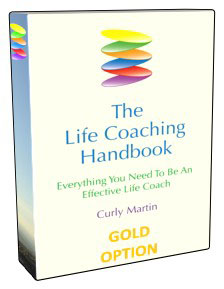What does good health mean to you?

In line with my own definition of good health, where am I now?
I realise this seems a strange thing to ask you to consider. The reason I ask is because we are all at different levels of health and for some of us good health would just mean being able to walk up the street without getting out of breath. For others it means being full of energy. You need to determine your own definition of health before you will know if you have it or not. Spend some time thinking about the answer and write it down in your note book.
You are what you eat!
There are many sayings about what we eat such as ‘rubbish in, rubbish out’, ‘eat fat, grow fat’, ‘over the lips and onto the hips’, and many more. There are hundreds of diet books, good food guides, television programmes, CDs and MP files all dedicated to the food we eat.
Every week there is new research which tells us ‘this is bad for you’, ‘this is good for you’ and yes you are right, they are talking about the same food! Most of us are not told where the funding for the research comes from. This is the key to fully understanding research findings. Just imagine for a moment; a vegetarian food manufacturer wants to promote vegetarian food and sponsors research into the bad effects of eating meat compared to eating vegetables. The results of the research will reflect the statement of intent of the original research. This means that because the statement of intent is searching for the bad effects of eating meat, that is where the focus and findings will materialize. It is all about focus. Let me prove this in a simple way so that you understand what I mean.
Activity
Pick a colour, any colour. I am going to use yellow for this activity. Now look around you and find everything that is yellow. Look behind, to your sides, above and below. If you are outside you can probably see some buttercups in the hedge, like the picture. Go on! Have a good look.
Now, answer this question: “How many blue things did you see?” “That’s not fair,” I hear you say! “You told me to look for the yellow.” Yes I did and that is what often happens with research. The outcome (looking for yellow) is stated before the research has begun, therefore the researchers are researching within previously defined parameters and will usually find what they are looking for. Add to this the fact that research has to be funded, so the research will probably report findings in line with or supporting the funding organisation’s viewpoint. So, going back to your activity, if you are specific in what you are looking for (yellow or your colour) it is an odds on favourite that you will always find it.
Taking this in light of all the research that we are bombarded with about foods being good for us or bad for us, we can now view the research with a more cautious approach by seeking the initial criteria and knowing who funded it.
Now there is another factor involved here, and that is your personal filtering. In the activity above I gave you the opportunity to select your own colour for a reason. As soon as you selected the colour, you have taken a more personal involvement in the activity and will have probably looked a little bit harder to find items displaying the colour you selected. Either way, you will have filtered out most of the other colours in your vicinity to complete the task. This means that when you read the findings of research you will also filter out information you do not want to see and information which does not match your beliefs. For example, say you absolutely adore chocolate. You are more likely to accept research which tells you chocolate helps you to relax than you are to accept research which states that it has a high fat content which is bad for you. No wonder we are all confused and some of us give up altogether and indulge in our fancies to the detriment of our health.
Eating for success
What food makes me feel sluggish?
Eat a varied, balanced diet which includes the necessary elements to keep you strong and full of energy, and eat in moderation. If you feel tired and sluggish after a meal, you are not eating for success. You need to feel energised and satisfied after eating and if you do not, review your food intake and make changes. Generally accepted is the rule of eating five portions of a combination of fruit and vegetables per day. A diet low in processed or pre-cooked food is recommended by successful athletes. For those of you who are not sure which foods are better for you, hire a nutritionist, do your research.
Extract taken from The Personal Success Handbook by Curly Martin.




